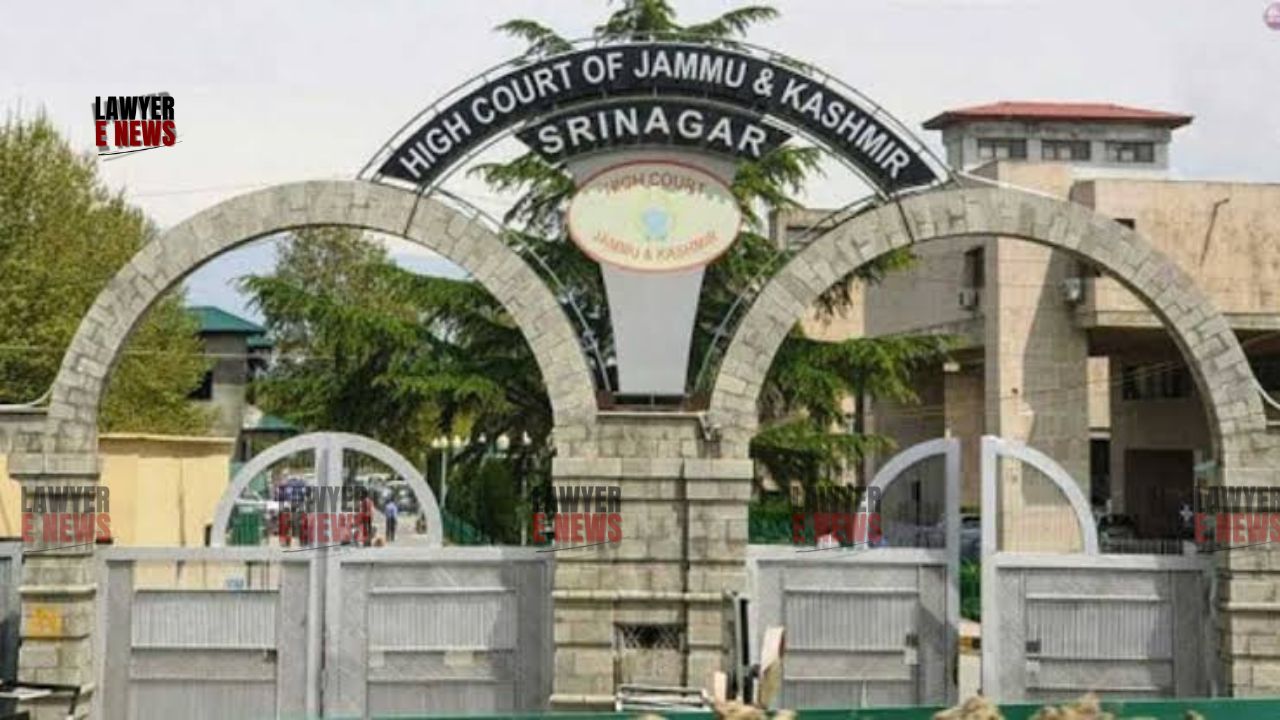-
by Admin
15 February 2026 5:01 PM



Jammu, May 2024: The High Court of Jammu & Kashmir and Ladakh has upheld the preventive detention of Baldev Raj alias Raju under Section 3 of the Prevention of Illicit Traffic in Narcotic Drugs and Psychotropic Substances Act, 1988 (PITNDPS Act). The judgment, delivered by Hon’ble Mr. Justice Rajnesh Oswal, dismissed the writ petition challenging the detention order, emphasizing the persistent involvement of the petitioner in illicit drug trafficking as a justifiable reason for the detention.
In a significant ruling, the High Court of Jammu & Kashmir and Ladakh upheld the preventive detention of Baldev Raj alias Raju, citing his continuous involvement in drug trafficking from 2011 to 2023. The court found the detention order, issued by the Divisional Commissioner of Jammu, valid and necessary to curb the petitioner’s illegal activities, which persisted despite multiple bail orders.
Baldev Raj, through his counsel Mr. Navyug Sethi, challenged the detention order on the grounds of non-provision of translated documents, non-application of mind, and reliance on old and stale incidents. The respondents, represented by Mr. Amit Gupta, AAG, argued that the petitioner had been involved in illicit trafficking of drugs over a significant period, justifying the preventive detention.
Credibility of Documents and Explanation: The court observed that the petitioner was provided with the detention documents in Hindi/Dogri, the language he understood, and these were explained by the Executing Officer. Justice Rajnesh Oswal noted, “The execution report duly prepared by the Executing Officer also bears testimony to the fact that grounds of detention were read over and explained to the petitioner in Hindi/Dogri language.”
Application of Mind by Detaining Authority: Addressing the issue of non-application of mind, the court held that the detaining authority had properly considered the relevant FIRs and independently assessed the necessity of the detention. “The reliance placed upon three FIRs only by the respondent No.2, notwithstanding the reference of 11 FIRs made in dossier, itself demonstrates that the respondent No.2 has applied its mind independently,” the judgment stated.
The court found a live and proximate link between the petitioner’s activities and the detention order, highlighting the petitioner’s involvement in three recent FIRs. Justice Oswal remarked, “The mere fact that the petitioner has been found to be involved in three FIRs itself makes it evident that the ordinary law has miserably failed to put the brakes to the illegal activities of the petitioner.”
The court discussed the inadequacy of ordinary criminal proceedings in dealing with the petitioner’s persistent criminal activities. Referring to the Supreme Court’s decision in Rekha v. State of T.N., (2011) 5 SCC 244, Justice Oswal reiterated that preventive detention is justified when ordinary laws are insufficient. “The illegal activities were not committed by the petitioner in the ordinary course of his business and in full public view which would have been taken care of by the ordinary law of the land but clandestinely,” he noted.
Justice Rajnesh Oswal emphasized the necessity of preventive detention in this case, stating, “Had the ordinary law been sufficient to deal with such situation, the position would have been different.”
The High Court’s decision to uphold the preventive detention of Baldev Raj alias Raju underlines the judiciary’s commitment to curbing illicit drug trafficking through stringent measures when necessary. This ruling is expected to reinforce the legal framework addressing narcotic drug-related crimes and highlight the importance of preventive detention in cases where ordinary criminal proceedings prove inadequate.
Date of Decision: 17th May 2024
